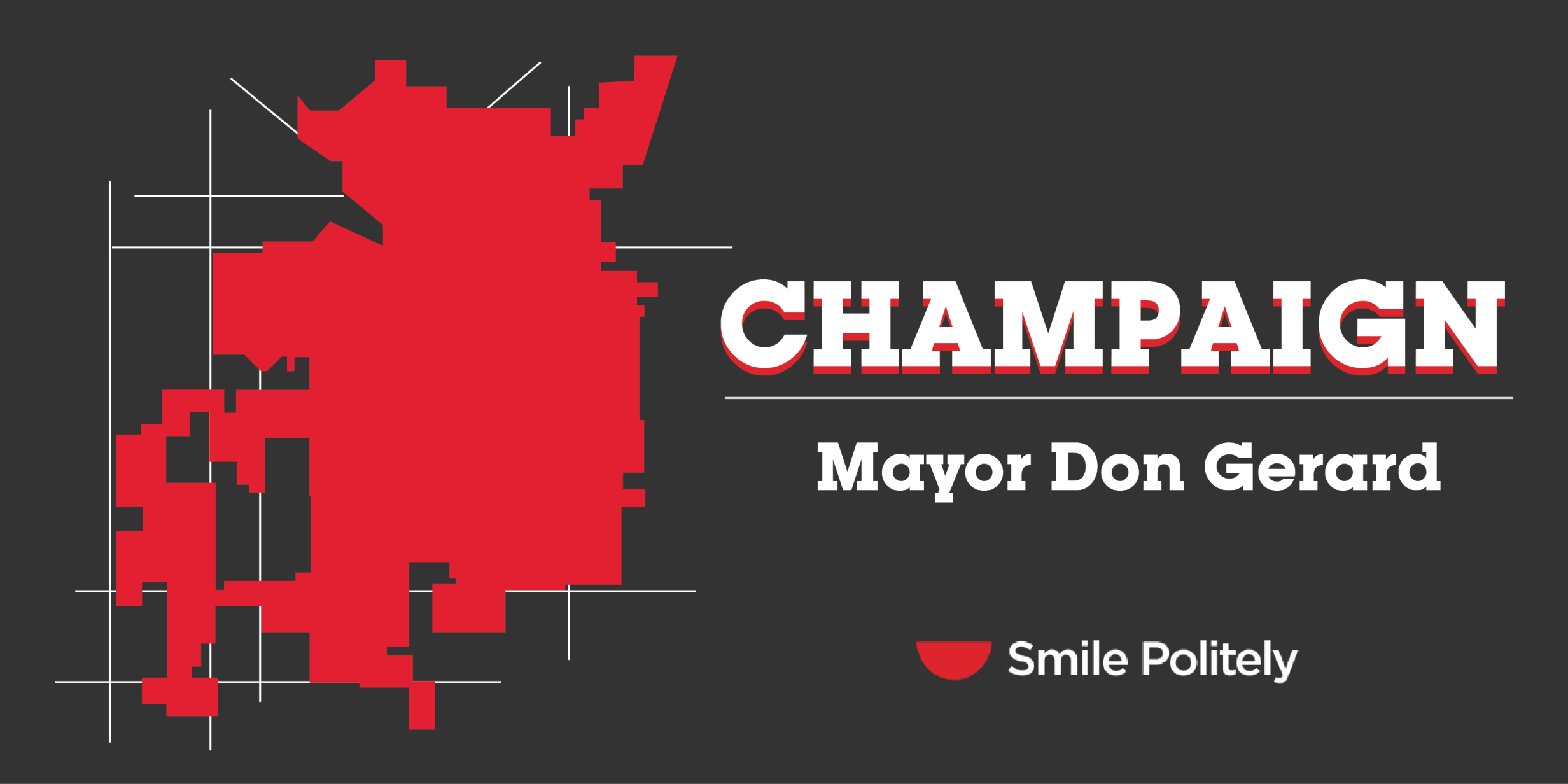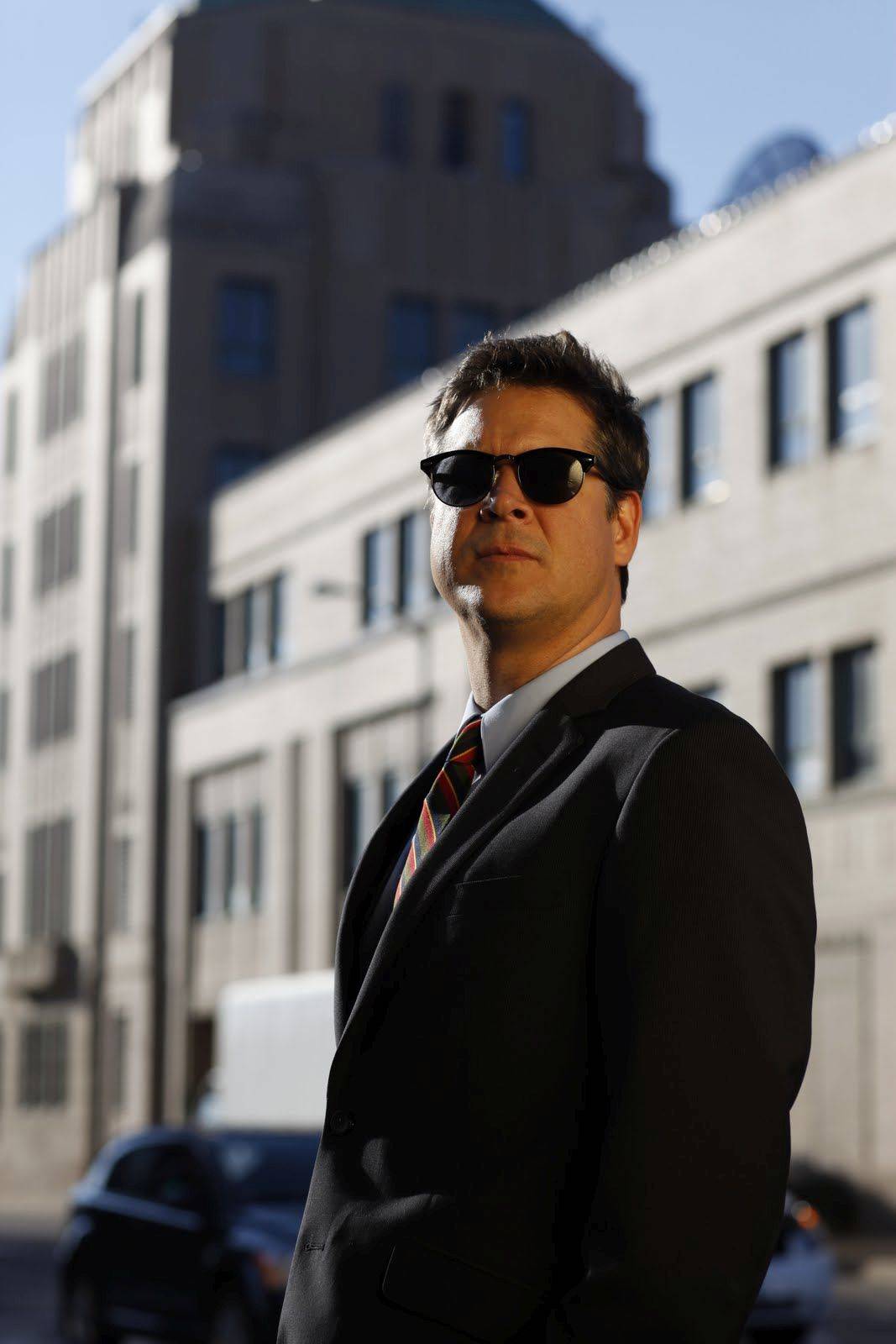 I saw Champaign Mayor Don Gerard hanging out with friends at The Esquire, a few weeks ago, so when it came time for a Smile Politely interview, I suggested we meet there.
I saw Champaign Mayor Don Gerard hanging out with friends at The Esquire, a few weeks ago, so when it came time for a Smile Politely interview, I suggested we meet there.
He was wearing a dress shirt, jeans, and a black sport coat. He courteously wired ahead when he found he’d be a few minutes late, and passed on joining me in a beverage.
The only questions he “passed” on, involved some of the more controversial issues decided at the state and federal level, and not in his bailiwick.
Question 1.
SP: In what part of the world was your upbringing?
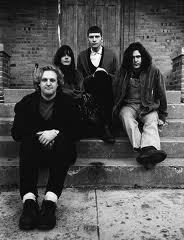 Gerard: Right here in Champaign, pretty much. We’ve been here for 45 years. I had the luxury of playing in rock bands, touring around a lot of the United States and a little bit of Canada.
Gerard: Right here in Champaign, pretty much. We’ve been here for 45 years. I had the luxury of playing in rock bands, touring around a lot of the United States and a little bit of Canada.
SP: Name of the band?
Gerard: The Moon Seven Times was the most popular. We put out three records on Roadrunner, so I had the opportunity to traverse the country, visit different places, then come back and realize what a great place Champaign is. It’s crafted my vision. Instead of being a kid from town who just can’t wait to get the hell out, I became a kid who got to leave all the time, only to realize how great it was.
Question 2.
SP: What was your home and family life like as a child?
Gerard: Dad worked two jobs, you know—he was kind of like me—I have two jobs, now. He worked at the university so some of my earliest memories were scrambling around under the bleachers at football games, playing football, going to basketball games through the 70s and 80s. I was a Boy Scout, went to public schools, got my Eagle Scout, played little league baseball, my dad coached—pretty typical Midwestern idyllic—it wasn’t bad. I think I came out alright.
SP: How do you think this led to becoming mayor?
Gerard: I never knew what I wanted to be until they told me I won the election, to be honest. I’ve worked so many jobs. I started out working on the loading dock at the university, now I oversee all of the facilities and maintenance operations for two schools. Like anybody else, I started asking questions, “Why did they do that that way?” “Why did that happen” and “Why couldn’t it have been like this?”
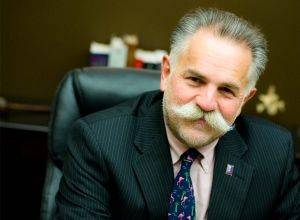 I had the good fortune of having a friend, Tom Bruno, 15 years ago. He was on the City Council and I was always interested. We met for lunch about every week with a group of guys and talked about city stuff, and I was fascinated.
I had the good fortune of having a friend, Tom Bruno, 15 years ago. He was on the City Council and I was always interested. We met for lunch about every week with a group of guys and talked about city stuff, and I was fascinated.
My predecessor was an entrenched incumbent; he hadn’t been challenged in two cycles, and he was viewed as “unbeatable” by a lot of people. No one bothered to run. He had Republican backing so none of the Republicans were going to run against him. So I saw an opportunity—I wanted to be on the council, but to be honest, mayor was the clearest shot.
Question 3.
SP: People often refer to C-U as a transient community, do you see it that way, why or why not? What does that moniker mean to you?
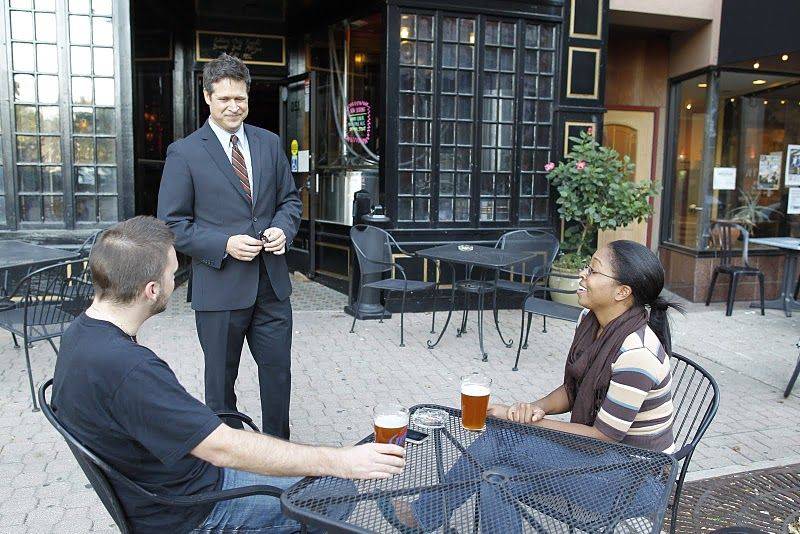 Gerard: I think historically you would see that because it’s a university town, but quite frankly if you were to come here in the summertime and look at our downtown, and say, “Hey look! It’s a college town in the summer!” people would say, “Get out.”
Gerard: I think historically you would see that because it’s a university town, but quite frankly if you were to come here in the summertime and look at our downtown, and say, “Hey look! It’s a college town in the summer!” people would say, “Get out.”
To the contrary, I see it more as a bear-trap community, to be honest. You see so many people who say, “I was planning on coming here for a couple of years; I was planning on just getting my degree, and ‘boom’ next thing I know I’m here for 25 years.” The City Manager was like that. He planned to be here four or five years and then moving on to something else—26 years.
It’s transient in that 40,000 undergrads are here, and a lot of them are going to move on through, but a lot of them stay. Our population is not growing coincidentally; it’s growing because it’s a great place to live and to raise your family.

If you look at our downtown business and how much people love the entertainment, and the events, and the chalk drawing contest—people love that. I think a big part of it is having the institutional organizations in place—Champaign Center Partnership for one—who says, “Hey! It’s summertime on campus, come check out all these great restaurants.” There were a lot of places that normally would shutter it up [in summer] who [now] stay open because they like the business.
Question 4.
SP: In your time on the council, has there ever been a time when you felt the community was really behind something that you had voted against, and why? …and vice-versa.
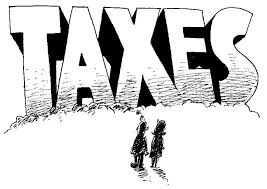 Gerard: Sure. People hate taxes. I’m right in that wheelhouse to pay a lot of taxes. I get taxed because I’m a guy who makes a certain amount of money between my two jobs. Nobody likes taxes, but taxes are the price of Democracy. We put in a quarter-cent sales tax and people are all up in arms, but you know what? Six new police officers, we keep our fire station open, we keep our library open, and we have over a million-and-a-half infrastructure to put into economic development and to take advantage of opportunities as they come—and they are. We have an actual designated revenue source, have money, and Triple “A” bonds to back it up at the city. We have the means to take advantage of anything. Chicago doesn’t have that. There’s no place in Illinois that’s set up as good as us in terms of taking advantage of what’s going to happen next.
Gerard: Sure. People hate taxes. I’m right in that wheelhouse to pay a lot of taxes. I get taxed because I’m a guy who makes a certain amount of money between my two jobs. Nobody likes taxes, but taxes are the price of Democracy. We put in a quarter-cent sales tax and people are all up in arms, but you know what? Six new police officers, we keep our fire station open, we keep our library open, and we have over a million-and-a-half infrastructure to put into economic development and to take advantage of opportunities as they come—and they are. We have an actual designated revenue source, have money, and Triple “A” bonds to back it up at the city. We have the means to take advantage of anything. Chicago doesn’t have that. There’s no place in Illinois that’s set up as good as us in terms of taking advantage of what’s going to happen next.
Question 5.
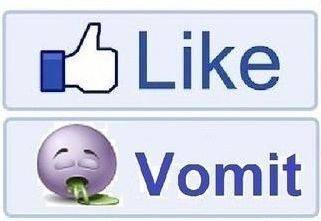 SP: If you could install a “vomit button” on your facebook page, blog, or website, what would the criteria be for you to press it and why?
SP: If you could install a “vomit button” on your facebook page, blog, or website, what would the criteria be for you to press it and why?
Gerard: I don’t think I’d ever press it, because I’ve learned there’s no upside to that. I often have to look at my friend’s facebook post and remember that I’m everybody’s mayor, even if I don’t agree with them. Sometimes we have to represent, guide people.
Question 6.
SP: When you unwind from a long day of work and council business, do you have a favorite hangout in CU where you can relax and throw a few back?
Gerard: I like to come downtown. I’ve grown more and more appreciative of alone time at home and spending time with my kids. The nice thing about my gig is I can walk downtown, go a half a block, see somebody I know, sit down and have a great conversation for an hour.
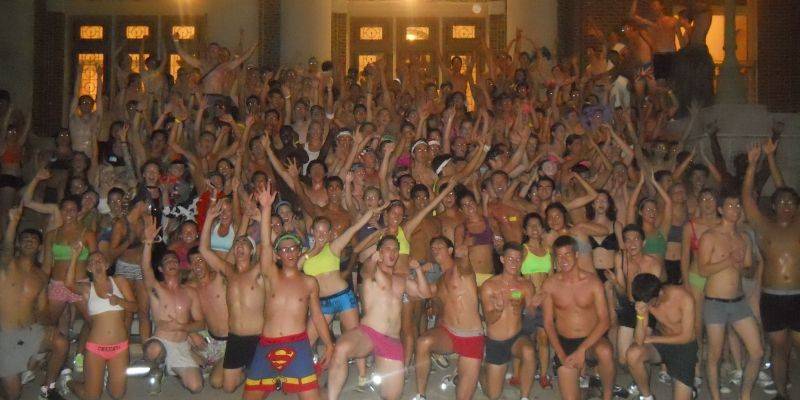 I did The Underwear Run with the kids and The Illini 4000. As mayor, I want the kids in college to feel like they’re dignified and part of this committee. Since I’ve been in office, we have a kid from the DI who comes to every meeting, we have an Illinois Student Senate liaison who comes; this has never, historically happened before. What I’ve done is reached out to the students and said, “This is your government, too. The municipal government is the purest form in which you can have the most input. There’s a lot of you, and if there are issues that affect you, you should have a say in these things.” That’s really been important to me.
I did The Underwear Run with the kids and The Illini 4000. As mayor, I want the kids in college to feel like they’re dignified and part of this committee. Since I’ve been in office, we have a kid from the DI who comes to every meeting, we have an Illinois Student Senate liaison who comes; this has never, historically happened before. What I’ve done is reached out to the students and said, “This is your government, too. The municipal government is the purest form in which you can have the most input. There’s a lot of you, and if there are issues that affect you, you should have a say in these things.” That’s really been important to me.
Question 7.
SP: What was the last time you bought a new car, where did you buy it, and for what kind of extras did you opt?
Gerard: I’m actually in the market for a new car.
Question 8.
SP: If someone in the Illinois state senate were to sponsor a bill to repeal the “conceal and carry” law in our state, would you support it? Why or why not?
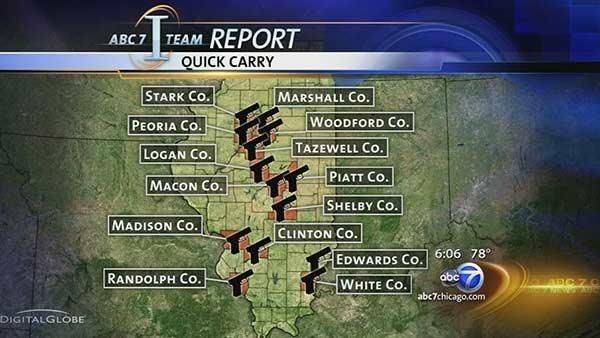 Gerard: At a municipal level, we have so much on our plate, that’s not a fight I want to get into. I think that the university should have a say, the chamber of commerce should have a say—it’s one of those issues. Personally, I don’t want to carry a gun, but I’ve been to every other state where you’re allowed to and I haven’t noticed a discernable difference. I think that’s above my pay grade. I’ll put my voice in for marriage equality 24 hours a day. I think that’s something I believe in; I signed the pledge Mayors for Marriage Equality, but that [conceal and carry] is a tough one and best dealt with at the state level.
Gerard: At a municipal level, we have so much on our plate, that’s not a fight I want to get into. I think that the university should have a say, the chamber of commerce should have a say—it’s one of those issues. Personally, I don’t want to carry a gun, but I’ve been to every other state where you’re allowed to and I haven’t noticed a discernable difference. I think that’s above my pay grade. I’ll put my voice in for marriage equality 24 hours a day. I think that’s something I believe in; I signed the pledge Mayors for Marriage Equality, but that [conceal and carry] is a tough one and best dealt with at the state level.
Question 9.
SP: Okay let’s keep it more local. Would you think it appropriate our municipality to fly a confederate flag?
Gerard: No.
Question 10.
SP: What would you say if a C-U resident came to a Tuesday meeting and asked why our city didn’t display religious artifacts.
Gerard: With the University of Illinois here, I think we have a little higher standard about focusing on what’s important. I don’t think it’s going to make our world a better place by putting The Ten Commandments up in City Hall.
Question 11.
SP: If there were one thing you could change about the way your city council operates, what would it be and why?
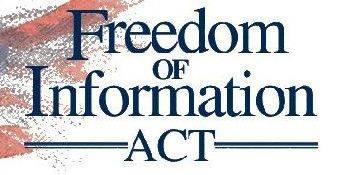 Gerard: Open meetings and the Freedom Of Information Act. I think it’s very important. I very much believe in transparency, but it gets exceptionally difficult for us to conduct business when no more than two of us can talk at the same time. It’s really difficult to get a consensus. The council has worked together pretty well; sometimes really important issues need to be decided and you got to know if you’re going to move forward, it’s worth spending time and city resources on. That’s one of the difficult things.
Gerard: Open meetings and the Freedom Of Information Act. I think it’s very important. I very much believe in transparency, but it gets exceptionally difficult for us to conduct business when no more than two of us can talk at the same time. It’s really difficult to get a consensus. The council has worked together pretty well; sometimes really important issues need to be decided and you got to know if you’re going to move forward, it’s worth spending time and city resources on. That’s one of the difficult things.
Question 12.
SP: Who were/are your heroes locally, nationally, or politically?
 Gerard: Mayor Rybak. Mayor R. T. Rybak of Minneapolis is awesome. I love that guy. I met him and we bonded over 80s rock bands. I played in bands; he knew the bands; he was in the scene. He’s really tremendous. I have a lot of respect for Al Franken. I don’t have a problem with Chad Hays (R-Illinois) and Rodney Davis (R-Illinois)—real good guys. I think we don’t agree ideologically on everything, but I think they mean well and they serve pretty honorably, to be honest.
Gerard: Mayor Rybak. Mayor R. T. Rybak of Minneapolis is awesome. I love that guy. I met him and we bonded over 80s rock bands. I played in bands; he knew the bands; he was in the scene. He’s really tremendous. I have a lot of respect for Al Franken. I don’t have a problem with Chad Hays (R-Illinois) and Rodney Davis (R-Illinois)—real good guys. I think we don’t agree ideologically on everything, but I think they mean well and they serve pretty honorably, to be honest.
 Dick Durbin (D-IL) always—that guy’s just a machine. I really, really respect that guy. I’ve some really good associations with Senator [Mark] Kirk’s (R-Illinois) people. They’ve really gone to bat for us on our aquifer issues, and a few other things.
Dick Durbin (D-IL) always—that guy’s just a machine. I really, really respect that guy. I’ve some really good associations with Senator [Mark] Kirk’s (R-Illinois) people. They’ve really gone to bat for us on our aquifer issues, and a few other things.
You see guys getting knocked. I was listening to Senator Durbin speak and he’s talking about being “knocked” for being too compromising, for giving up too much, and he said, “We have to get stuff done.” Subsequently, I go to the Lincoln Day Dinner and hear the keynote speaker chastising Rodney Davis and Jason Barickman for talking about compromise, and that’s a bad word.
You know what? This is America. There’s got to be a deal there are no absolutes, and we have to get some stuff done. At the end of the day, we have to get this stuff done.
Question 13.
SP: What current national political issue most captures your attention? What current local issue?
 Gerard: I’m vested in marriage equality. I think that it’s an economic issue, a boon to our economy, not to mention it’s a human rights issue. With all due respect, there’s a lot of things the government should not be involved in and probably marriage is one. VERY proud of State Senator Jason Barickman, he was the first Republican to come out and say, “This is the right thing to do.” They tried to slap him down, and he stood firm. It meant a lot.
Gerard: I’m vested in marriage equality. I think that it’s an economic issue, a boon to our economy, not to mention it’s a human rights issue. With all due respect, there’s a lot of things the government should not be involved in and probably marriage is one. VERY proud of State Senator Jason Barickman, he was the first Republican to come out and say, “This is the right thing to do.” They tried to slap him down, and he stood firm. It meant a lot.
Question 14.
SP: How do you see the city you represent in relationship to your sister city, [Champaign/Urbana]? In your view, what makes each community unique?
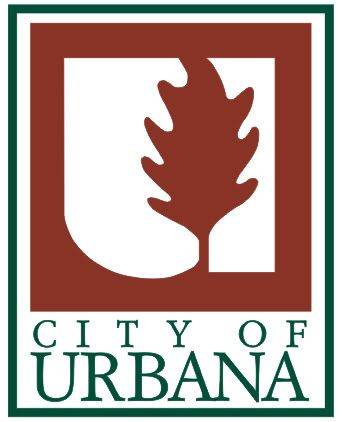 Gerard: I talk to [Mayor] Laurel [Lunt Prussing] a lot. They do things differently there. I think she’d like to partner with Champaign more but in her eyes, sometimes that means us going along with an idea she thinks is good. That being said, they have a lot of challenges over there. I’m really grateful to have come into an extraordinarily fiscally conservative city staff and previous councils that made sure Champaign was on solid footing. We’ve made some hard choices to pass some discretionary taxes and that has put us out in front, and we have so much to invest now. Two hundred million dollars in construction this year in Champaign—two hundred million during this recession, and we’ll have that much again next year. It’s just remarkable, and it’s not happening in Urbana and not happening in Savoy.
Gerard: I talk to [Mayor] Laurel [Lunt Prussing] a lot. They do things differently there. I think she’d like to partner with Champaign more but in her eyes, sometimes that means us going along with an idea she thinks is good. That being said, they have a lot of challenges over there. I’m really grateful to have come into an extraordinarily fiscally conservative city staff and previous councils that made sure Champaign was on solid footing. We’ve made some hard choices to pass some discretionary taxes and that has put us out in front, and we have so much to invest now. Two hundred million dollars in construction this year in Champaign—two hundred million during this recession, and we’ll have that much again next year. It’s just remarkable, and it’s not happening in Urbana and not happening in Savoy.
Question 15.
SP: What is your direct role in those changes?
Gerard: I ran on the public safety ticket. I got the firefighter’s support and said we’re not going to “brown-out” a fire station. I ran on keeping the police front desk open, and I lobbied very hard for it. It’s not cheap to do public safety and public work, but the vote was 8 to 1; the council knew it [the quarter-cent sales tax] needed to be done. You cannot eliminate six positions, have your population grow, build more tall buildings, and brown-out a fire station. It’s not how you do business; you don’t want to get behind.
All ships rise to the tide, and the little boats, too.
I don’t think there will ever be a statue of me, and I don’t want that. What I want is to have a positive impact that’s going to affect generationally the people who choose to make this their home.
—
With that, we said goodbye and promised to meet again on more casual terms. Mayor Gerard moved to another booth in The Esquire to visit with Champaign Police Chief Anthony Cobb—there might just be that statue, yet.








